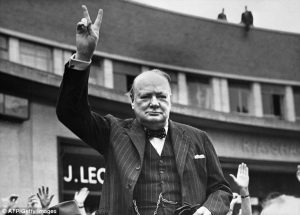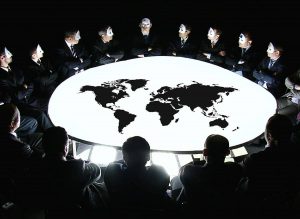Theory of Elite
The power elite is made up of those people who are in a position to make decisions with major consequences and in command of the major hierarchies and organizations of modern society. The elite is thus described in terms of its potential power rather than actual exercises of power. “The power attached to elite positions may not in fact be used by their occupants. They may, instead, allow events to take their own course, let the matters ꞌdriftꞌ and history be made ꞌbehind menꞌs backs.ꞌ At the core of Millsꞌs analysis – and of his political radicalism – is the belief that within the dominants institutions of modern U.S. society the means for exercising power are more concentrated into a few hands than at any previous time in history.”12
The history-making ability of the elites is enough to overturn the status quo, call into question the existing social relationships and establish a new structure. The very centre of the elite has the capability to determine the roles both it and others will play in society. According to Millsꞌs observation, “the major policy decisions of American government in the last generation, such as the bombing of Hiroshima and the commitment to the Korean war illustrates the enormous centralization of the means of decision-making in the hands of a very few institutional office-holders.”13 In the United States the multiplicity of small businesses have been dwarfed by large interrelated corporations. A massive military hierarchy has grown up in place of the various state militias, and federal government dominates the several states and centralized previously scattered powers. The British ruling class, on the other hand, is a combination of institutional and class position. A detailed study of this will be made later on in this chapter. However, it could be said that Britain enjoys oligarchical leadership. Power in Britain is held by people who share similar backgrounds and beliefs. Their sons also benefit from the facilities that are available to them in order to reach similar ranks.
There will be considerable disadvantages for a government which depends solely upon military power to maintain control. In the long term it is important for all people in positions of power that they should have their position recognised as legitimate (rightful) by those over whom they have power. Professor B.Crick in his article “Basic Concepts For Political Education” has this to say: “…probably all governments require some capacity for or potentiality of force or violence, but probably no government can maintain itself through time, as distinct from defence and attack at specified moments, without legitimising itself in some way, getting itself loved, respected, even just accepted as investable, otherwise it would need constant recourse to open violence – which is rarely the case.”14
In this respect the exercise of power becomes a matter of authority. Authority is the quality of being able to get people to do things because they think the individual or group has the right to tell them what to so. Those in authority are followed because it is believed that they fulfil a need within the community or political system. Authority then is linked to respect, which creates legitimacy, and therefore leads to power.



